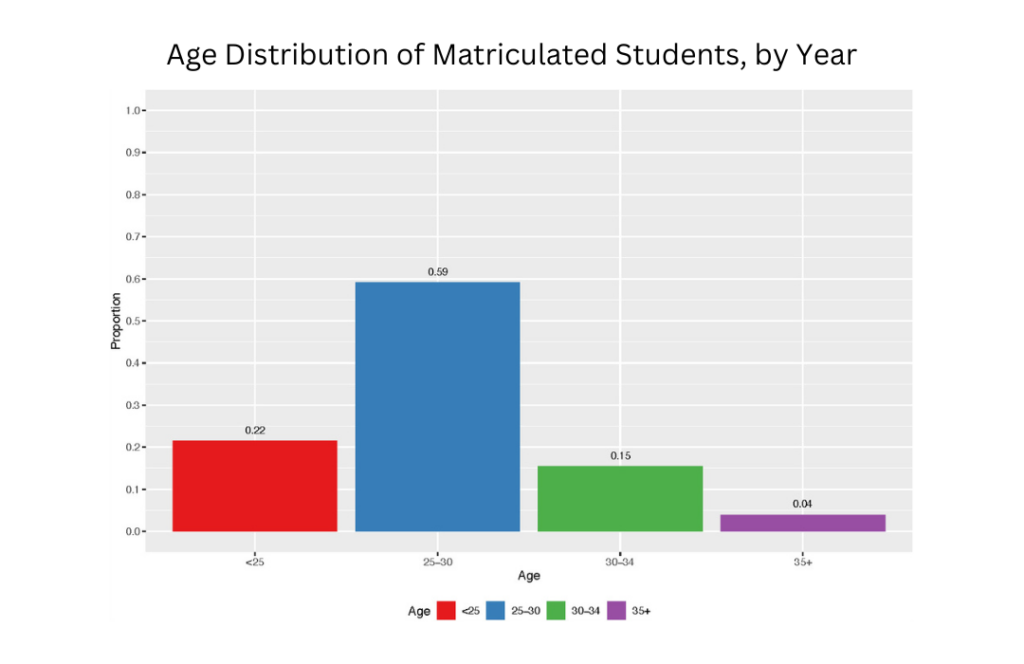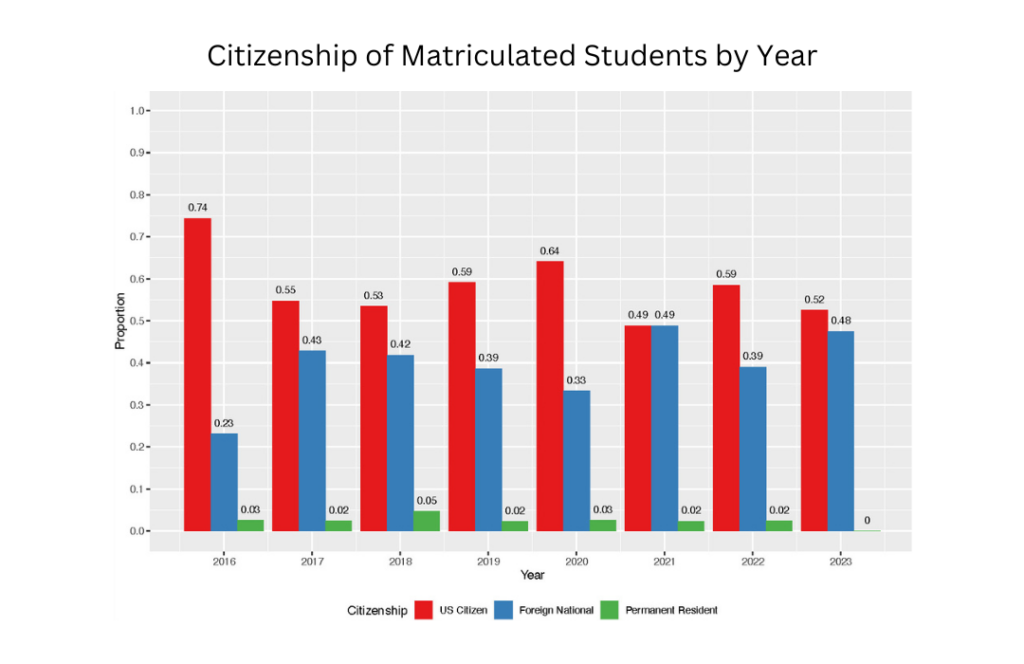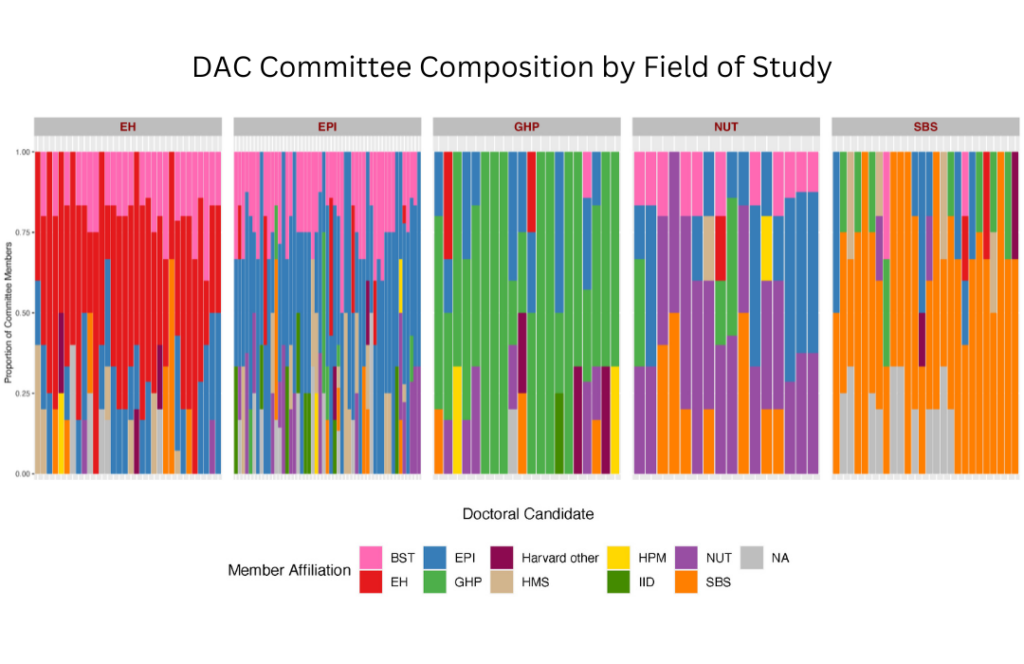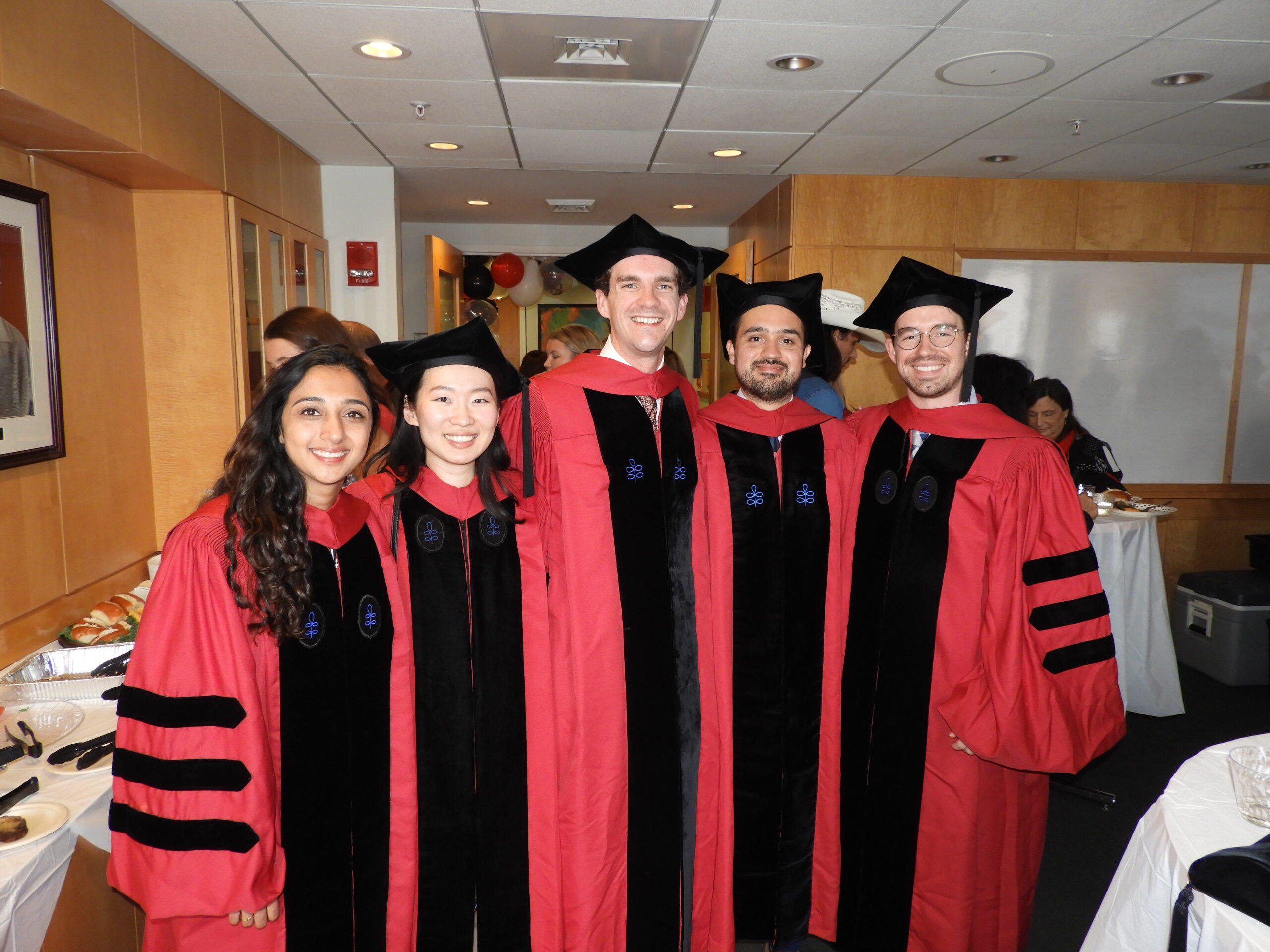Doctor of Philosophy – Population Health Sciences (PHS)

Complete the form linked below to receive additional information about Harvard Chan School’s degree programs.
Summary
The Doctor of Philosophy (PhD) in Population Health Sciences (PHS) is a cohort-based, multidisciplinary degree that provides students with the research and analytical tools needed to tackle a wide range of complex, large-scale public health issues.
This degree is offered at the Harvard T.H. Chan School of Public Health under the aegis of the Harvard Kenneth C. Griffin Graduate School of Arts and Sciences.
About
The PhD in Population Health Sciences (PHS) integrates multiple disciplinary perspectives spanning the biological, physical, and social sciences—along with a variety of scientific methods and analyses—toward the study and understanding of a common endpoint: the health of populations.
In addition to building depth and unique expertise in each of these five fields of study, we also recognize the commonalities and synergies that exist across them:
- Environmental Health (EH)
- Epidemiology (EPI)
- Global Health & Population (GHP)
- Nutrition (NUT)
- Social & Behavioral Sciences (SBS)
We are committed to facilitating collaboration of our 180+ students and faculty across all of our fields of study and between the Griffin Graduate School of Arts and Sciences and Harvard Chan through this unprecedented interdisciplinary research approach.
On Campus (Fall & Spring) • Full-time (4 years)
RECORDED LIVE INFO SESSION
Watch the recorded session to learn more about the Population Health Sciences (PHS) program and the admissions process.
Follow this link to frequently asked questions.
Curriculum
The PHS PhD is purposely designed as a 4-year program (with a 5th-year option), gauging student academic progress via successful completion of yearly milestones:
- Year 1: PHS & Field Core Requirements
- Year 2: Field- & Research-Related Coursework, including Qualifying Examinations (in most cases)
- Year 3: Research & Data Collection
- Year 4: Dissertation & Defense
- PHS 2000 A & B + Lab: Quantitative Research Methods in Population Health Sciences
- EPI 201: Introduction to Epidemiology – Methods 1 + Lab
- EPI 202: Elements of Epidemiologic Research – Methods 2 + Lab
- SBS 506: An Introduction to History, Politics, & Public Health: Theories of Disease Distribution & Health Inequities
- HPM 548 (or Faculty of Arts & Sciences-offered course): Responsible Conduct of Research
- Additional courses required within each field of study
EPI201 (2.5 credits)
Introduction to Epidemiology: Methods I
Provides a foundation for understanding and critically evaluating epidemiologic studies:
- Measures of disease frequency and association, assumptions underlying causal inference in various study designs
- Sources and types of bias (confounding, selection bias, and information bias), and effect measure modification
- Study designs
EPI202 (2.5 credits)
Methods II: Elements of Epidemiologic Research
- Analysis and interpretation of results
- Statistical inference
- Crude analysis
- Stratified analysis
- Effect measure modification analysis
- Standardization and weighting
- Linear and logistic regression
- Matched analysis
- Magnitude of bias due to confounding and impact of misclassification and measurement error
PHS2000A (5 credits)
Quantitative Research Methods in Population Health Sciences I
Covers the fundamentals of commonly used quantitative methods, including terminology, underlying assumptions, interpretation, and application to data.
In particular, students are encouraged to develop a deeper intuition around regression modeling than is covered at the master’s level.
- Sampling
- Maximum likelihood estimation
- Regression modeling (linear regression, generalized linear models), including model specification, estimation, inference, interpretation, and model evaluation
- Introduction to measurement, survival analysis, longitudinal analysis, and multilevel modeling
PHS2000B (5 credits)
Quantitative Research Methods in Population Health Sciences II
Provides a survey of quantitative research methods from across the population health sciences, with an emphasis on understanding underlying assumptions and interpretation. Students are empowered to critically evaluate and critique the methodologies employed in the population health sciences literature.
- Causal inference and sources of bias
- Introduction to marginal structural models and time-varying confounding
- Interaction and mediation econometric and quasi-experimental methods
- Missing data
- Factor analysis
- Replication, systematic reviews, and meta-analysis
SBS506 (2.5 credits)
An Introduction to History, Politics & Public Health: Theories of Disease Distribution and Health Inequities
- Explores the history and critical perspectives underlying current theories of disease distribution, with implications for public health research and practice
- Students learn to delineate fundamental features of scientific theories, hypotheses, and empirical facts, and discern their relevance within the realm of theories of disease distribution
HPM548 (1.25 credits) or Similar Harvard course
Responsible Conduct of Research
Introduces basic ethical and regulatory requirements for conducting bench, animal, clinical, and public health research.
Please reference the following links for department information specific to each Field of Study.
Environmental Health (EH)
Epidemiology (EPI)
Global Health and Population (GHP)
Nutrition (NUT)
Year 1
Courses:
PHS2000A (Fall) + PHS2000B (Spring)
PHS2506 (Fall 1)
EPI201 (Fall 1) + EPI202 (Fall 2)
RCR – Responsible Conduct of Research (multiple options)
Field of Study Required Coursework
Other Milestones:
Prospective Program Form submitted (end of Spring semester)
Examinations:
WQE I Examination (GHP students)
Field of Study PQEI (some continuing Chan master’s students)
Year 2
Courses and Requirements:
Field of Study Required Coursework (continued)
TF/RA Requirement (if applicable)
Examinations:
Field of Study PQEI
WQE II Paper (GHP students)
[PHS2000A (Fall) + PHS2000B (Spring) for the few students who needed additional Biostatistics coursework in Year 1]
Year 3
Milestones:
Final Program of Study Submitted (End of Fall semester)
PQEII Committee Chosen
Dissertation Proposal Submitted (2–3 weeks prior to PQEII)
PQEII: Preliminary Qualifying Examination (ideally by the end of Fall semester)
Formation of DAC – Dissertation Advisory Committee
TF/RA Requirement (if applicable)
Year 4
Milestones:
DAC Committee Meetings (required every three to six months)
TF/RA Requirement (if applicable)
Application for Fifth Year Extension (if applicable, March)
Dissertation Defense:
Dissertation submitted to FAS with Dissertation Acceptance Certificate Sign-Off
Harvard Chan Convocation, GSAS Diploma Awarding Ceremony, and Harvard Commencement
Year 5
Milestones (if applicable):
Fifth Year extension available with approval of PHS Director
TF/RA Requirement (if applicable)
Dissertation Defense:
Dissertation submitted to FAS with Dissertation Acceptance Certificate Sign-Off
Harvard Chan Convocation, GSAS Diploma Awarding Ceremony, and Harvard Commencement
Competencies
Our Community
PHS Snapshot
- 350-850 applicants per year
- 2025 admitted cohort size: 29 students; field of study numbers can vary from year-to-year
- Students and alumni from 35+ countries
- ~40% international students
- Prior degrees: 10% bachelor’s, 85% master’s, 5% MD
- Matriculant age range: 22 to 45 years old
- 180+ PHS students in years one through five
- Fifth largest of fifty-seven Harvard PhD programs



Click on link for a complete listing of successful PHS PhD dissertations to-date.
See our PHS Team. If you have any inquiries please send your questions to phdphs@hsph.harvard.edu e-mail.




Latest News
Career Outcomes
As a population health sciences graduate, you will be prepared for a career in research, academics, or practice, tackling complex diseases and health problems that affect entire populations. Those interested in pursuing research may go on to work at a government agency or international organization, or in the private sector at a consulting, biotech, or pharmaceutical firm. Others may choose to pursue practice or on-the-ground interventions. Those interested in academics may become a faculty member in a college, university, medical school, research institute, or school of public health.
- Academic 59%
- Business 28%
- Government 4%
- Non-governmental organization 3%
- Residency 3%
- NA 3%
Eligibility Criteria
Anyone with a distinguished undergraduate record and a demonstrated enthusiasm for the rigorous pursuit of scientific public health knowledge through research is encouraged to apply. Although a previous graduate degree is not required, applicants should have successfully completed coursework in introductory statistics or quantitative methods. Preference will be given to applicants who have either some relevant work experience or graduate-level work in their desired primary field of study.
Applicants may only apply for full-time status. Applications are reviewed in their entirety and decisions are released via e-mail in mid-February. Decisions are not released until all application components are received.
Application Requirements
- Application and application fee
- Transcripts
- Three letters of recommendation
- Statement of purpose
- Personal statement
- Demonstration of English proficiency (TOEFL or IELTS)
- Writing samples
- GRE Scores – Required for ALL applicants (No Exceptions)
Yearly Application Deadline: December 1
For more information on applying, visit the Kenneth C. Griffin Graduate School of Arts and Sciences website.